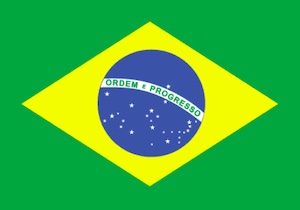Payment providers and financial institutions in Brazil face inspection processes and potential sanctions if they fail to file within 24 hours reports of illegal operators using their platforms.

A new ordinance from the Ministry of Finance’s Secretariat of Prizes and Bets (SPA), which is overseeing the new online gaming regulations, mandates that such companies are prohibited from allowing transactions, or carrying them out, for placing bets with individuals or legal entities that are not authorised by the SPA.
Payment providers and financial institutions must adopt measures that allow them to spot people using their platforms to carry out actions such as bets, deposits or withdrawals, with illegal operators.
When such cases are spotted, companies have 24 hours to report to the SPA the data of suspicious payment transactions as well as any indication of the reasons that led to the suspicion regarding the account holder or transaction.
Payment providers and financial institutions must also explain the measures they have taken to prevent such transactions.
This data must be sent within 24 hours after the company becomes aware of the transaction or identifying data that arouses suspicion regarding the legal status of an operator.
The communication must be carried out “even in cases where the suspicious payment transactions originate or are destined to a natural or legal person other than the illegal operator, in cases where there are indications that the account is being used, as an intermediary, by a third party for the purpose of moving resources for the irregular operation of the fixed-odds lottery betting modality,” the SPA’s ordinance adds.
“The new measure, together with the removal of illegal websites and advertisements, will be a fundamental reinforcement in the fight against those who want to operate without authorisation and for the protection of bettors,” said Regis Dudena, the secretary of Prizes and Bets at the Ministry of Finance.
Dudena said the ordinance “aims to prevent these websites, which put people's economy and finances at risk, from receiving financial resources, closing the circle of illegal activity.”

